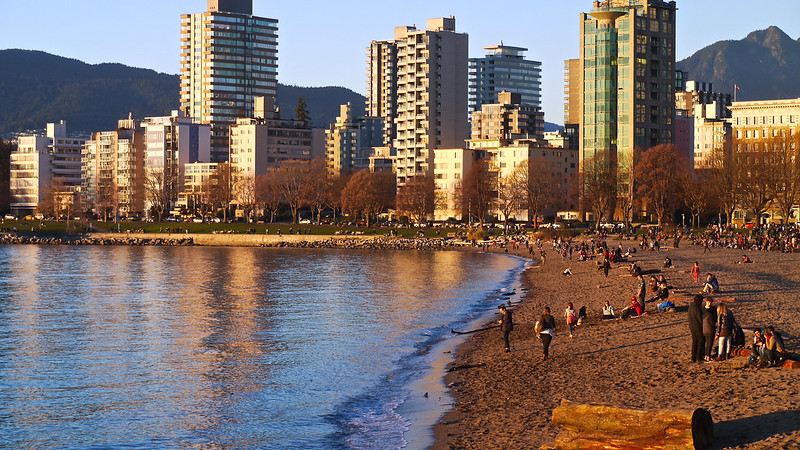
Vancouver, British Columbia – Canada’s three oceans are an integral part of our national identity. They provide beauty and enjoyment to our citizens, serve as a refuge and ecosystem to millions of life forms and support a thriving ocean economy accounting for approximately $31.65 billion annually in GDP. From Pacific reefs that are over 9,000 years old, to important feeding grounds for fish stocks in the Atlantic, to critical habitats for beluga whales in the Arctic, Canada is taking action to protect our oceans and the life they sustain. The Government of Canada recognizes that, as our economy starts to open up, it will be more important than ever to chart a course to grow Canada’s Blue Economy.
The Minister of Fisheries, Oceans, and the Canadian Coast Guard, the Honourable Bernadette Jordan, speaking at the Vancouver Board of Trade today, outlined the Government’s path forward to achieve healthy, sustainable oceans and economic prosperity here in Canada and around the world. This includes reaching our target of protecting 25% of our oceans by 2025, working toward 30% by 2030, and developing a national Blue Economy Strategy to ensure Canada is positioned to take advantage of new opportunities.
The Government of Canada exceeded its 10 % marine conservation target ahead of the United Nations’ 2020 deadline, reaching 13.81 % in 2019. Minister Jordan spoke about the Government’s ongoing work to reach its next protections target, including a Pacific Area of Interest for marine protection off the coast of Vancouver Island.
At the same time as the Government has increased ocean protections, the Blue Economy has continued to grow, employing approximately 300, 000 Canadians currently across various industries. The Minister underscored the importance of creating a Blue Economy Strategy that will guide the Government of Canada’s actions and investments to grow Canada’s ocean economy.
Minister Jordan made clear that environmental protection must therefore continue to go hand-in-hand with economic growth. To that end, she announced that Fisheries and Oceans will be accepting new applications for funding from July 15 to September 15, 2020 for the British Columbia Salmon Restoration and Innovation Fund (BCSRIF). Funding is open to Indigenous communities, industry associations, environmental non-governmental organizations, commercial enterprises, and academic institutions. Investments through this program will help recover salmon habitat, benefit commercial and recreational fishing and aquaculture, as well as support science and research initiatives. Pacific wild salmon are integral to British Columbia’s economy and cultural heritage, and restoring their populations is a shared, top priority.
Today, the Minister of Fisheries, Oceans, and the Canadian Coast Guard, the Honourable Bernadette Jordan, and the BC Minister of Agriculture, the Honourable Lana Popham, announced funding for eight projects under the British Columbia Salmon Restoration and Innovation Fund (BCSRIF). More than $10 million in funding will support research and monitoring activities, infrastructure upgrades to community hatcheries, and the development of strategies to enhance the sustainability of Pacific fisheries.
– 30 –
Quotes
“We cannot have a strong ocean economy without healthy oceans. With three oceans and the longest coastline in the world, Canada has a real opportunity to both grow our economy and become a global leader in ocean conservation. That’s why our government will be moving forward to protect 25 per cent of Canada’s oceans by 2025 and 30 per cent by 2030 and will work to advance a blue economy strategy. We are also investing now through such programs as British Columbia Salmon Restoration and Innovation Fund in efforts that will protect and restore our oceans and coastlines. Together we will ensure that more Canadians can sustainably continue to make a living on, and from, the water for generations to come.”
The Honourable Bernadette Jordan, Minister of Fisheries, Oceans and the Canadian Coast Guard
“The BCSRIF projects will continue to increase our knowledge and understanding of wild salmon behaviour, and to improve the conditions of B.C.’s waterways and oceans so they can support wild fish populations in the years and generations ahead. The collective work underway by First Nations, scientists and community groups demonstrates how important wild fisheries are to British Columbians, and gives us all hope for sustainable wild fish populations in the future.”
The Honourable Lana Popham, BC Minister of Agriculture
Quick facts
- Canada’s oceans economy accounts for about $31.65 billion annually in GDP. This includes marine transportation, ship building, energy, tourism and recreation. All of these sectors provide opportunities and jobs to our coastal communities.
- Canada’s aquaculture industry in general currently provides 30,000 good middle-class jobs on all three coasts, mostly in coastal, rural and Indigenous communities.
- The Government of Canada has begun work to introduce Canada’s first-ever Aquaculture Act, with the aim of bringing more clarity and transparency to Canadians as to how aquaculture will be managed in order to achieve responsible and sustainable growth.
- DFO is committed to working with the Province and Indigenous communities to create a responsible plan to transition open net-pen farming in British Columbia. We will move forward using the best available science, evidence, and input to develop a plan for aquaculture in B.C. and will be exploring all options throughout this process.
- The BCSRIF is a 70 per cent federal, 30 per cent provincial cost-shared program.
- The Government of Canada is investing $100 million over five years for the British Columbia Salmon Restoration and Innovation Fund, and provided a one-time investment of $5 million for the Pacific Salmon Endowment Fund.
- The Government of British Columbia is investing $42.85 million over five years and has provided a one-time grant of $5 million for the Pacific Salmon Foundation.
- Indigenous communities, commercial organizations in the wild fisheries and aquaculture sectors, recreational fisheries, as well as non-commercial organizations such as universities and research institutions, industry associations and conservation groups, can apply.
- All application are reviewed by Fisheries and Oceans Canada and the Province of British Columbia.